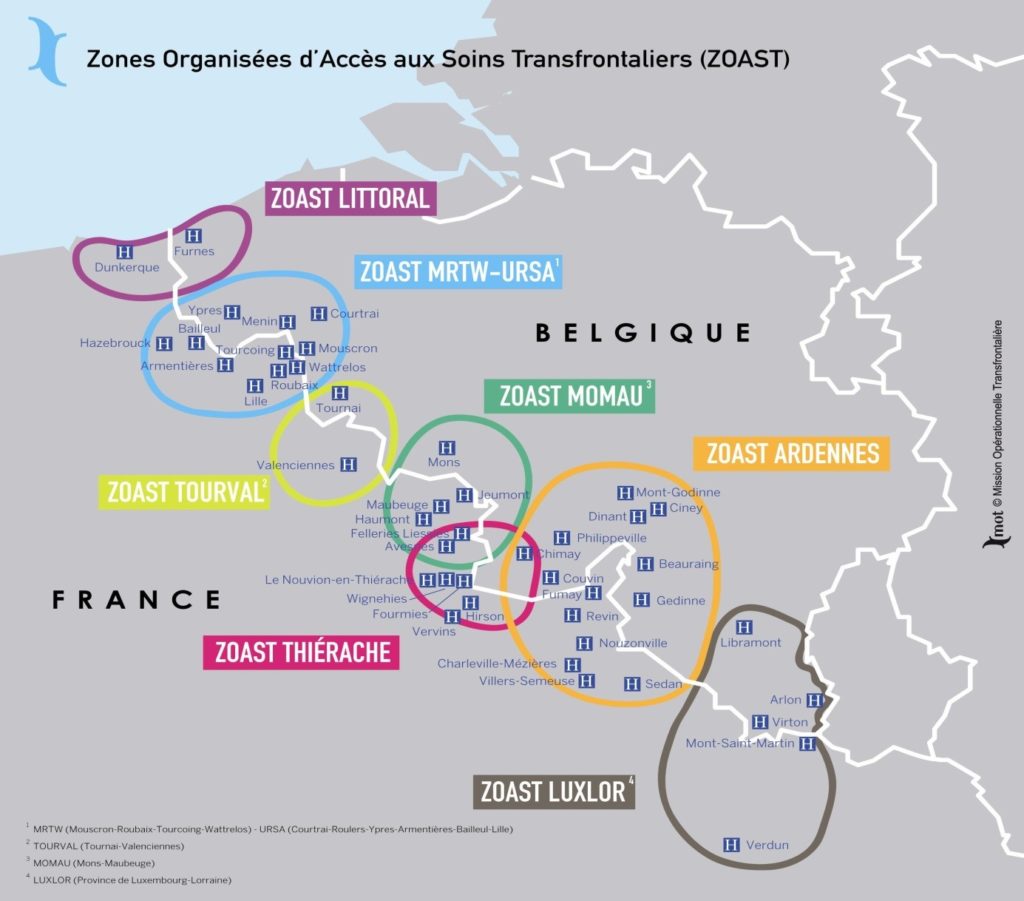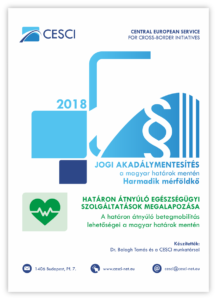Objective
Within the subproject, we continued our work that we have already begun in recent years, to prepare for the establishment of cross-border health services. In particular this subproject covered, the rights of patients provided by the European Union and national legislation, as well as the already existing Western European models. In order to study how and under what conditions cross-border service areas could be developed with the participation of Hungary and Hungarian hospitals.
Download
The study prepared in the frames of this subproject can be downloaded in Hungarian by clicking on its cover below.
Implemented activities
To improve cross-border patient mobility, we implemented the following activities:
- A questionnaire was made and sent to cross-border municipalities (53) and (55) cross-border hospitals, but unfortunately, none of the responding organizations could provide a specific example of cross-border cooperation in the field of healthcare;
- We gained relevant experience through interviews with cross-border hospitals;
- We organized a Western European study trip from 12 November to 16 November to the French-Belgian and German-Dutch border, in order to gather information and gain experience of well-functioning Western European models, and to demonstrate the benefits of sharing of services to the experts (In addition to the CESCI’s interpreter-team leader, an employee of the Hungarian Ministry of Human Resources, an employee of the National Health Insurance Fund of Hungary and an employee of the Vaszary Kolos Hospital in Esztergom also participated in the study tour, as well as experts consulted by the CESCI. On 26 November we summarized the results of this study trip within a dedicated workshop.)
- Our attempt to collect data on cross-border patient mobility was limited, but it also pointed out the need to monitor cross-border patient mobility activities;
- A senior expert consulted by the CESCI comprehensively analysed the legal basis for cross-border patient mobility.

Service areas along the French-Belgian border
Source: https://eur-lex.europa.eu/legal-content/EN/TXT/HTML/?uri=CELEX:52017SC0307&from=HU
Proposals
According to the results of the subproject, a total of ten specific proposals were formulated concerning border crossings for health purposes, and another four for health tourism. The study presented four possible models for financing medical treatment.

Participants of the study trip to the Belgian-French border region.
Perspectives
The European Union provides the legislative and policy framework for extending patients’ rights, ensuring the conditions for cross-border patient mobility; however, there is still a need for further action to implement them, which we are planning within the 2019 Legal Accessibility Project:
- further study of the institutional and legal environment;
- assessment of (4) specific cross-border hospitals (PILOT analyzes);
- propositions of the text of intergovernmental agreements in order to facilitate cross-border patient care;
- drawing up model contracts for the provision of cross-border services by the hospitals concerned;
- introducing a guide written in Hungarian in order to organise cross-border patient care.
